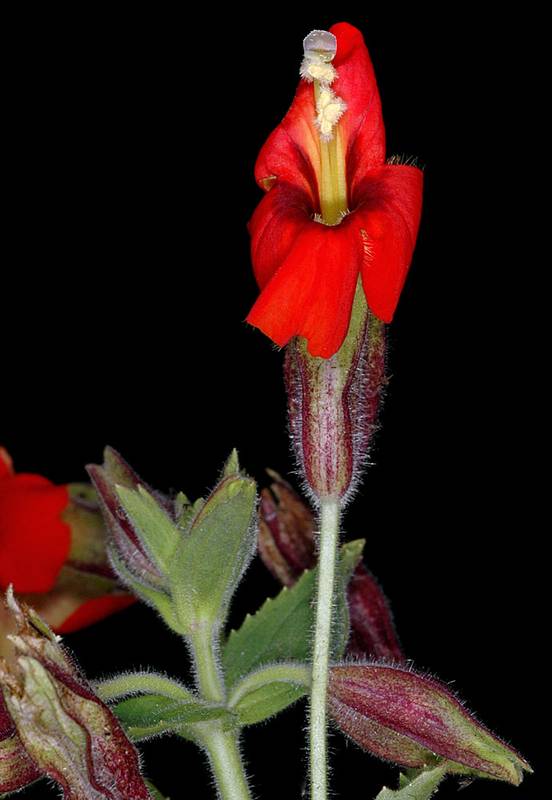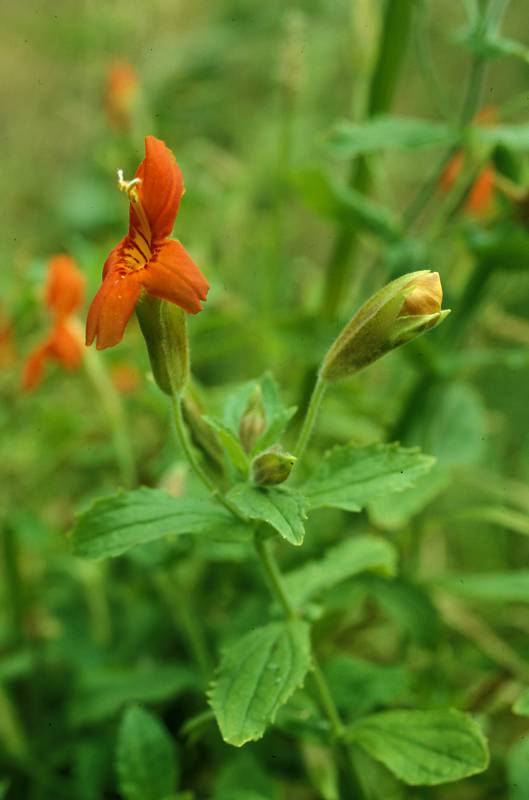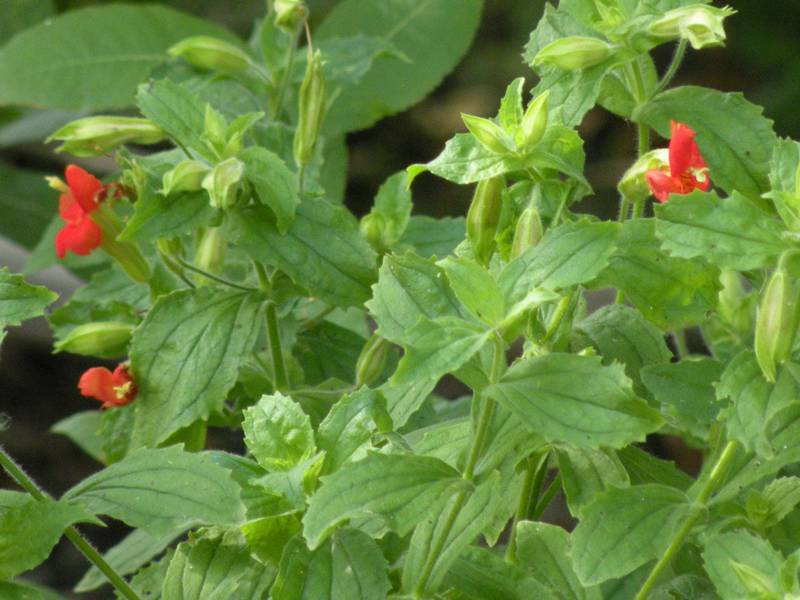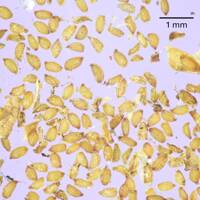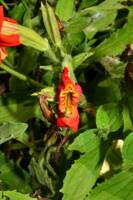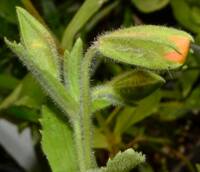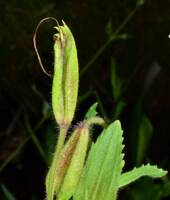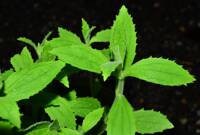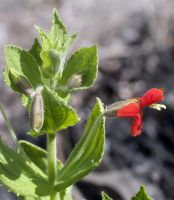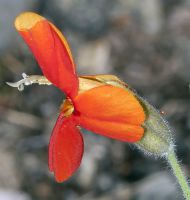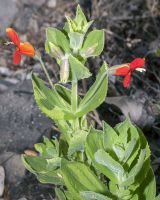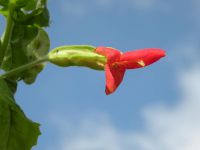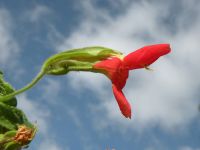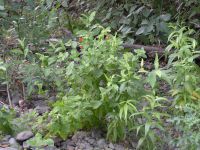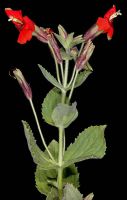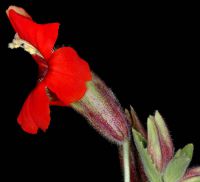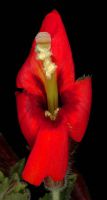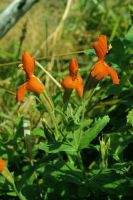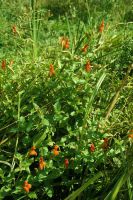Distribution: Occurring east of the Cascades crest in Washington; Washington to California, east to the southern Rocky Mountains.
Habitat: Streambanks, where escaped from cultivation.
Flowers: May-August
Origin: Introduced
Growth Duration: Perennial
Conservation Status: Not of concern
Pollination: Hummingbirds
Rhizomatous perennials; stems 25-75 cm, usually erect or curving upward, branched, somewhat glandular-villous or becoming glabrous.
Leaves typically cauline; sessile; blade ovate to elliptic to obovate, 20-90 mm long and 10-38 mm broad, palmate venation, base acuminate and nearly clasping, margins irregularly toothed, apex acute, surfaces hairy as stems.
Axillary flowers 2-12, emerging from leaf axes at mid- to ends of stem; fruiting pedicels generally 30-90 mm; calyx cylindric to nearly bell-shaped, not inflated, 17-28 mm, hairy or bristly-hairy, lobes 4-7 mm, ovate to nearly deltate, apex attenuate-acute; corollas red to orangish red or rarely yellow, throat yellowish with red stripes, palate red, yellow-villous and not spotted or striped, symmetric bilaterally, distinctly bilabiate; tube-throat funnel-shaped, generally 20-30 mm, protruding beyond calyx margin; throat open; styles glabrous; anthers protruding, white-hairy, thecae spreading.
Capsules 10-16 mm, included.
Publication: Phytoneuron 2012-39: 1–60. 2012.
Mimulus cardinalis Douglas ex Benth. [JPM]
PNW Herbaria: Specimen records of Erythranthe cardinalis in the Consortium of Pacific Northwest Herbaria database
WA Flora Checklist: Erythranthe cardinalis checklist entry
OregonFlora: Erythranthe cardinalis information
E-Flora BC: Erythranthe cardinalis atlas page
CalPhotos: Erythranthe cardinalis photos

